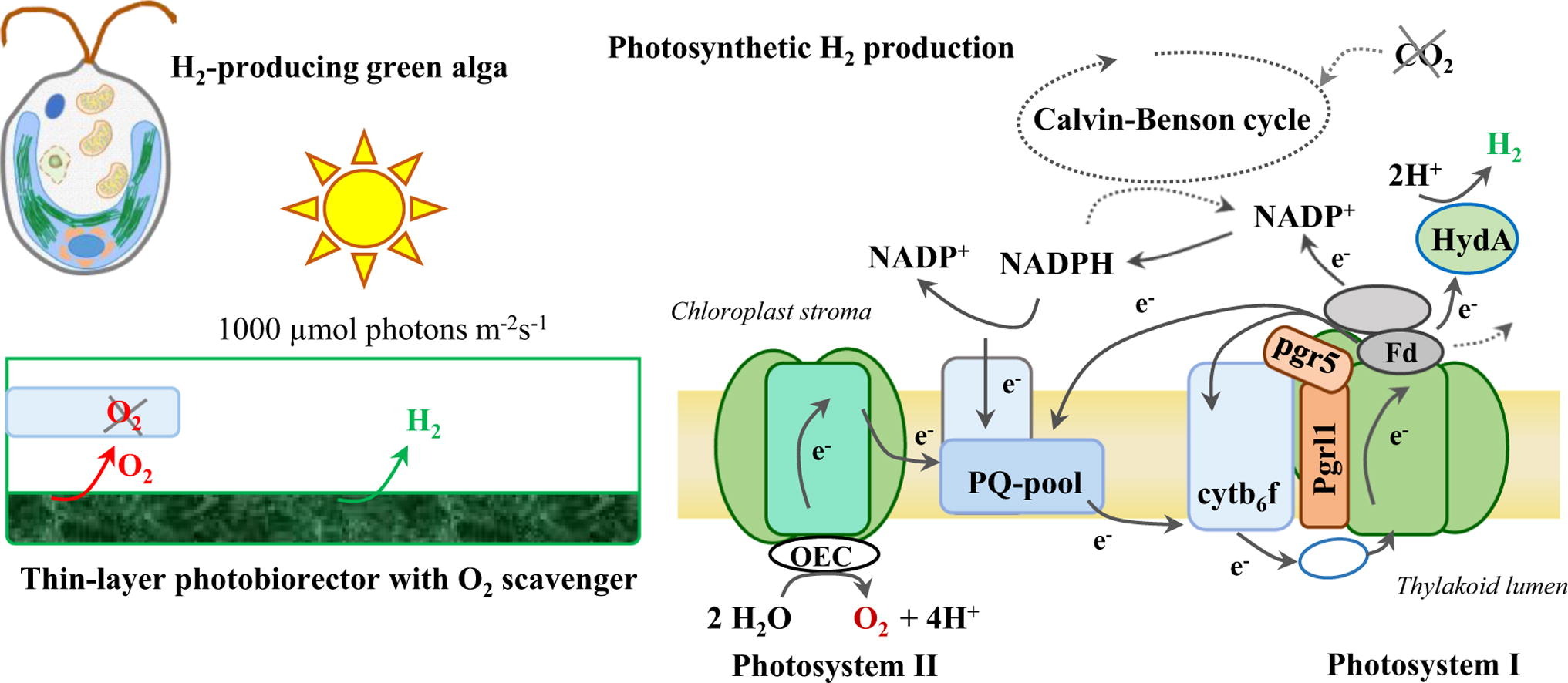Jun 2, 2021 | News
New results on hydrogen production by green algae were published in the prestigious journal Bioresource Technology by Zita Szilvia Tóth and her research group . Hydrogen production by green algae takes place in nature under certain conditions, however, it lasts only a few minutes and does not produce industrially relevant amounts of H2.
The team developed a novel method that not only increased hydrogen output three-fold, but also extended the duration of the process, for up to 6 days. To achieve this, they placed a dense thin-layer culture into a bioreactor and kept it in the dark for a few hours. This promotes the formation of hydrogen-producing enzymes in the organism. Then they exposed the culture to sunlight, inducing H2 production from water. The goal is to increase the amount of hydrogen produced, by improving the efficiency of the technique.
The publication, entitled a “Thin cell layer cultures of Chlamydomonas reinhardtii L159I-N230Y, pgrl1 and pgr5 mutants perform enhanced hydrogen production at sunlight intensity” is available at the publisher’s site here: https://www.sciencedirect.com/science/article/pii/S0960852421005563

The source of the image is the article